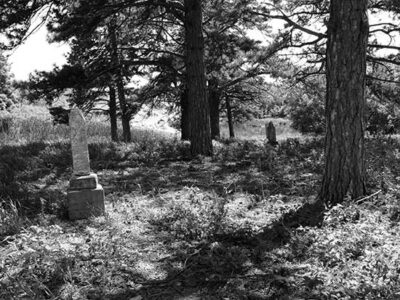Photo by Getty Images/JanLeoKaak.
Everywhere I turn these days people are either warning about near-term climate collapse and social breakdown, or declaring how important it is to not give up hope. Or both.
Tech guru Douglas Rushkoff reports that a group of super-wealthy hedge fund CEOs from Silicon Valley asked him his thoughts about the future. Which region will be less affected by the coming climate crisis, they wanted to know—New Zealand or Alaska? Could they upload their minds onto supercomputers, as Google’s Ray Kurzweil plans to do, and thereby transcend the apocalypse? One of the CEOs, who was building his own underground bunker, wondered: How do I maintain authority over my security guards after the Event (a.k.a., when the Sh*t Hits the Fan)? Withhold their food? Electronic dog collars? Replace them with robots?
Rushkoff, author of a dozen books on media, technology, and culture, including Team Human, says, “It feels as if civilization itself is on the brink, and that we lack the collective willpower to address the very survival of our species.”
Feeling similarly bleak, two years ago my sweetheart and I joined our local Transition Town group. About half the 30 or so members are students at Macalester College, the rest are faculty, staff, and neighbors. We meet every few weeks to talk about what’s going on in the world, read aloud to each other from books like David Fleming’s Surviving the Future, and work on projects like a neighborhood pollinator path, campus food-buying coop, movie nights, promoting the Community Food & Water Farm Bill, spreading the Zero Waste message, and much more.
At a recent U.S. Transition Town national summit, linking local groups across the nation via video, the American writer and management consultant Margaret Wheatley gave a keynote address. Like Rushkoff, Wheatley believes that our global civilization is on the brink of collapse. “After September 11, 2001 I noticed a complete shutdown. Since then, in too many places, people have withdrawn into fear, aggression and self-protection. It’s increasingly difficult for mature, experienced leaders and younger, engaged activists to do their work without falling victim to exhaustion, cynicism and despair.”
But Wheatley, whose latest book is Who Do We Choose to Be?, offers a humane and positive vision. “Throughout history,” she said, “warriors have appeared during times of crisis to defend the kingdom, the faith, the tribe.” Wheatley studied the role of warriors in Japan, India, Tibet, and among Native American nations, and has created a training, grounded in the lineage of Tibetan Buddhist teacher Chögyam Trungpa, for what she calls, “warriors for the human spirit.”
“Warriors preserve and defend essential knowledge, practices and wisdom about creating healthy relationships and healthy communities. We need warriors now to help create islands of sanity in these crazy times.”
Participants in Wheatley’s warriors training prepare for the unknown future by cultivating “dwelling mind,” says Wheatley, which equips them to deal with the overwhelming emotions of grief, sadness, anger and depression, and enables them to respond more sanely in difficult situations. “This requires discipline, diligence, and support. We rely on the belief that human beings are caring, generous, and want to be together. We share the clarity that whatever the problem, community is the answer.”
Rushkoff agrees. “Find the others,” he exhorts his readers. Everyone’s on Team Human, he says, and they’re everywhere.
Like Wheatley, I’ve given up trying to save the world, and I haven’t tumbled into despair (at least not most of the time). Instead, I’m working on my to-do list. Here it is: 1. Find my people (both those who are similar, and especially those who are different from me); 2. Get better at living the “Zero Waste” lifestyle; 3. Find a writing shack in or near a wild place; 4. Do everything I can to bring down the techno-industrial system and replace it with cooperative, commons-based communities; and, 5. Remember that life is precious and ephemeral, and love like there’s no tomorrow.
For info on Wheatley’s warrior training, visit The Berkana Institute. For those interested in joining Rushkoff’s Team Human, check out his website. To find or start a Transition group in your area, go to Transition United States.
Eric Utne is the founder of Utne Reader.





